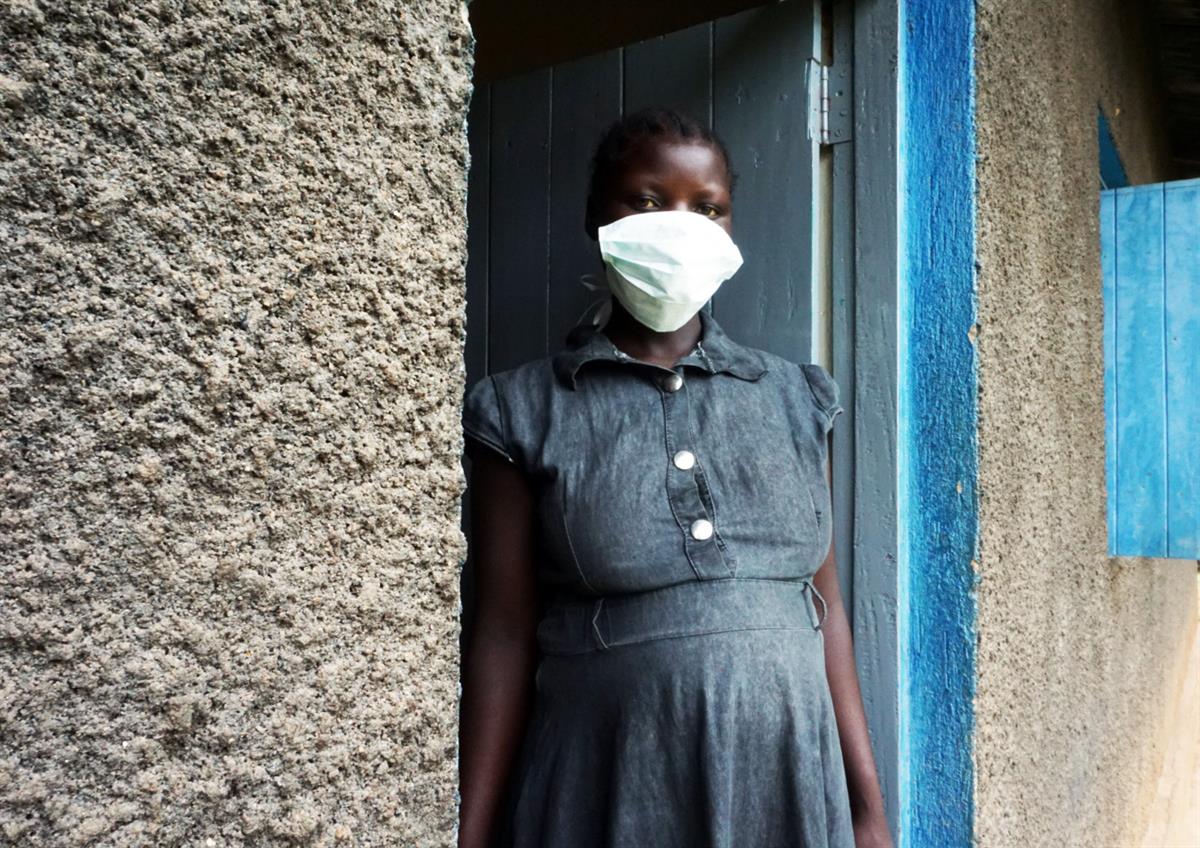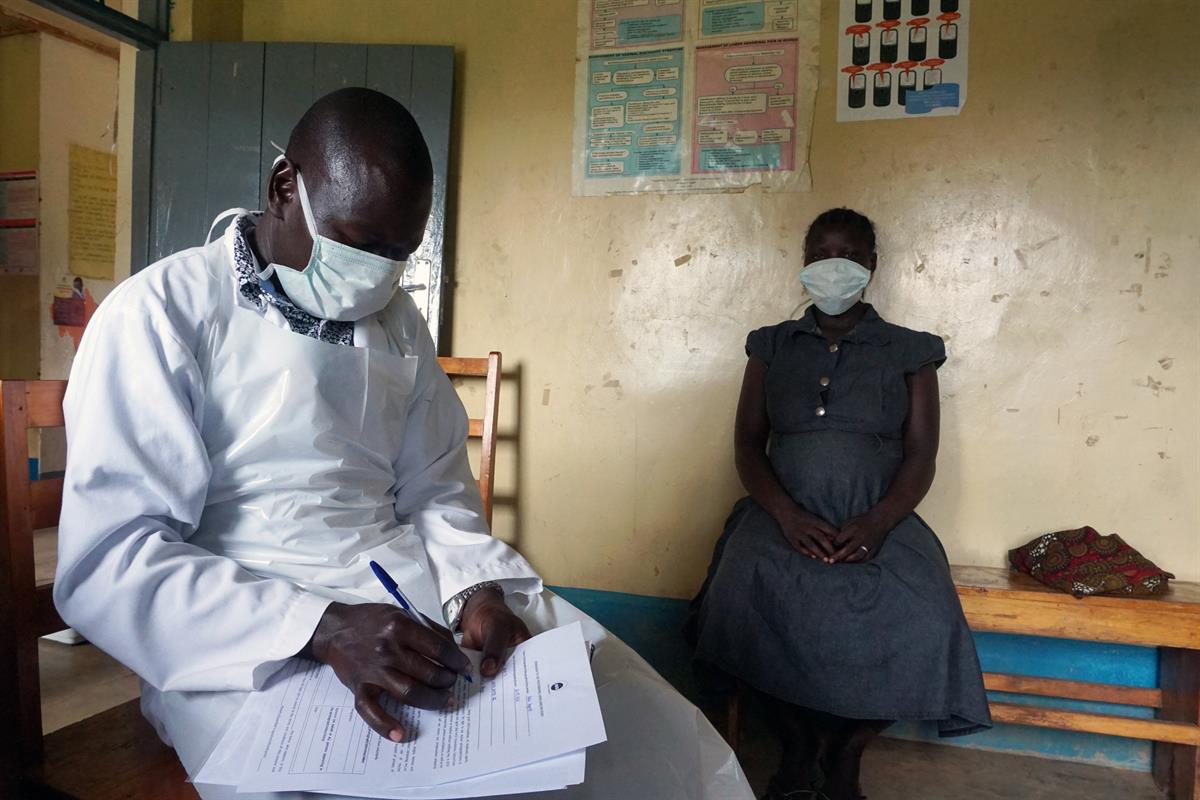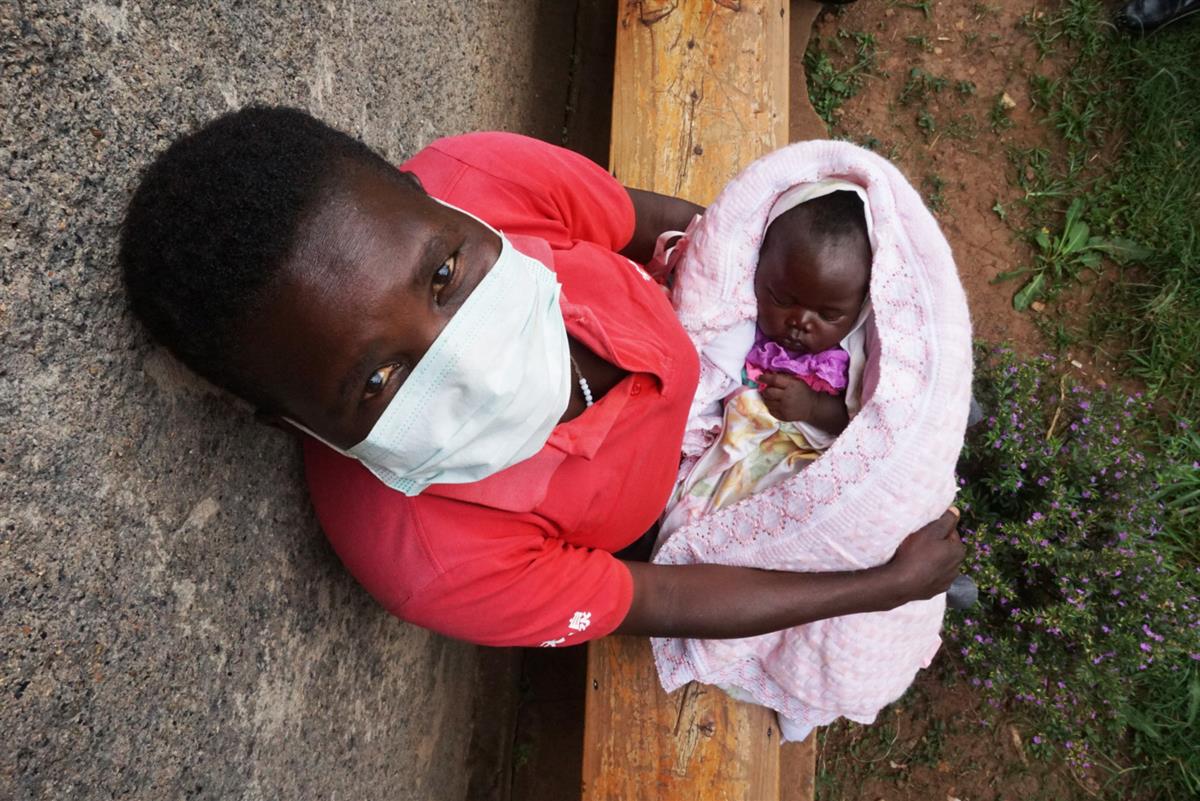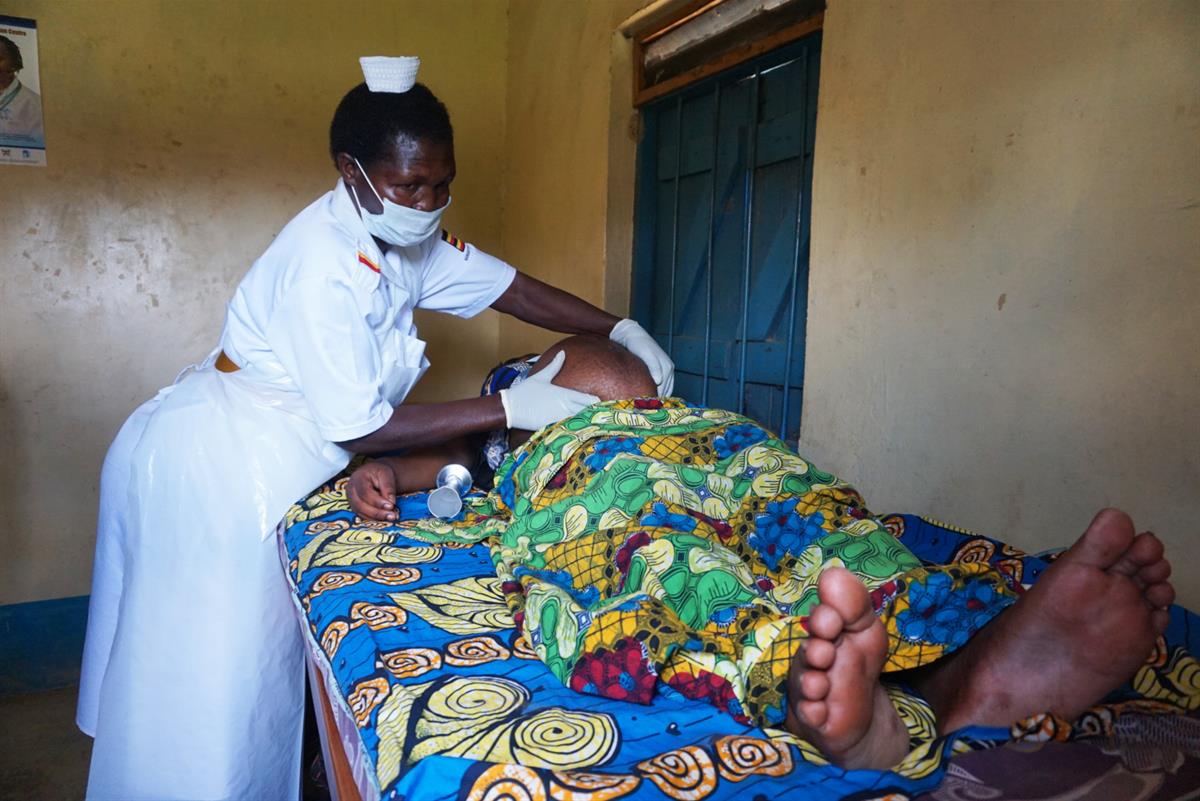William Lenga, 52 years old, has been working as a boda-boda rider for the last two years. Boda-bodas are bicycle and motorcycle taxis commonly found in East Africa. William’s task is even more specific and vital: he urgently transports an ailing pregnant woman, a mother of a newborn, or an infant under five years old to the nearest health facility for medical attention. When the first positive case of COVID-19 was announced in Uganda, William started worrying: how could he keep helping mothers in his community and care for his eight children’s safety?
"With this job that doesn't permit social distance, I didn't know how things would be and how I would take care of my family while assisting mothers in my community." says William.
The situation became even more challenging when the Ugandan government, as part of the lockdown to prevent the spread of COVID-19, determined that public and private transport systems, including boda-bodas, wouldn’t be allowed to carry passengers. This restriction led to the temporary suspension of boda-bodas, who often support community referrals, especially in rough terrains (hard-to-reach areas). Consequently, mothers and their newborns faced difficulties in reaching health facilities, most of which are over a five-kilometer distance from their homes, placing their lives at risk of preventable deaths and health complications.
To continue providing uninterrupted maternal, neonatal and child health services to communities, AVSI Foundation secured movement clearance from the COVID-19 District Task Forces for boda-bodas offering referral services in the West Nile District, Northern Uganda. Thanks UNICEF funding, the boda-boda riders received training following the Ministry of Health guidelines to prevent and control COVID-19. They also receive alcohol-based hand sanitizers and personal protective equipment, including face masks.




Now, William feels a mix of relief and pride every time he drives back home after a day transporting pregnant women or mothers carrying their newborns. In April and May, William’s collaboration with the Village Health Teams in Pakadha village helped eleven mothers and three children to reach Pakadha Health Center III for timely healthcare. William’s community is aware of the risks of the virus, and they are taking every precaution as they interact with one another. The boda-boda driver still worries about the spread of COVID-19 in Zombo, his home district located a few kilometers away from the Democratic Republic of Congo, but fear doesn’t stop him.
"How could I stop providing this service for mothers and children in my community?" asks Williams. "They need this help all the time, and I cannot find words to describe the joy of seeing a mother's smile when I bring her home."
Since the beginning of the lockdown, 1,464 pregnant mothers exhibited danger signs and the need for medical examination during pregnancy and were transported by the boda-boda system. There were zero deaths due to pregnancy or labor complications.